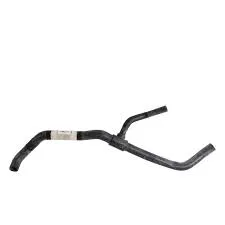high pressure line for power steering pump
Sep . 04, 2024 02:30 Back to list
high pressure line for power steering pump
High Pressure Line for Power Steering Pump An Overview
The power steering system in modern vehicles has become an essential component for enhancing drivability and ensuring driver comfort. Among the various components of this system, the high pressure line plays a pivotal role. This article delves into the significance of the high pressure line for power steering pumps, its functioning, and maintenance.
What is a High Pressure Line?
The high pressure line is a hydraulic hose that connects the power steering pump to the steering gear or rack. It is designed to withstand the high pressures associated with hydraulic steering systems, which can range from 800 to 1500 psi or more. The primary function of this line is to transport pressurized hydraulic fluid from the pump, where it is generated, to the steering mechanism, allowing for smooth steering response with minimal effort from the driver.
Functioning of the High Pressure Line
When the driver turns the steering wheel, the power steering pump generates hydraulic fluid under pressure. This pressurized fluid flows through the high pressure line to the steering gear, where it assists in turning the wheels. The high pressure allows the system to amplify the driver’s input, making it easier to steer, especially at low speeds or during parking maneuvers.
high pressure line for power steering pump

The high pressure line is typically constructed from durable materials such as reinforced rubber or steel braiding to ensure it can withstand the intense conditions it faces. Additionally, these lines are often equipped with specialized fittings to prevent leaks at connection points, as even a small leak can significantly impair the efficiency of the power steering system.
Importance of Maintenance
Like any other component of a vehicle, the high pressure line can wear out over time due to constant exposure to pressure, heat, and environmental factors. Regular inspections of the high pressure line are crucial for maintaining the integrity of the power steering system. Drivers should be attentive to signs of wear, such as fluid leaks or cracks in the line, which may indicate a need for immediate replacement.
Neglecting to address issues with the high pressure line can lead to a loss of steering assistance, making the vehicle more challenging to control and increasing the risk of accidents. In severe cases, a ruptured line can lead to a complete failure of the power steering system, resulting in potentially dangerous driving conditions.
Conclusion
In conclusion, the high pressure line is a vital component of the power steering system, playing an essential role in providing drivers with the ease of steering that modern vehicles offer. Understanding its function and maintaining its integrity through regular inspections can enhance vehicle safety and performance. For vehicle owners, being proactive about the maintenance of this critical line ensures a smooth and responsive steering experience.
